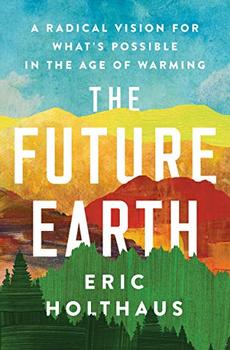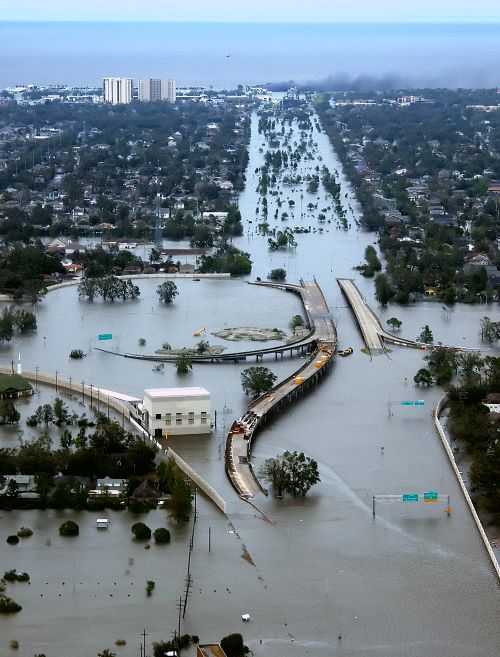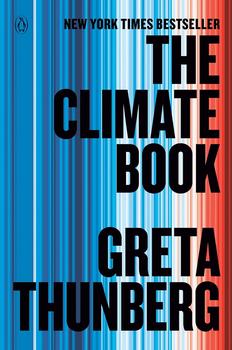Summary | Excerpt | Reviews | Beyond the book | Read-Alikes | Genres & Themes | Author Bio

A Radical Vision for What's Possible in the Age of Warming
by Eric HolthausThe first hopeful book about climate change, The Future Earth shows readers how to reverse the short- and long-term effects of climate change over the next three decades.
The basics of climate science are easy. We know it is entirely human-caused. Which means its solutions will be similarly human-led. In The Future Earth, leading climate change advocate and weather-related journalist Eric Holthaus ("the Rebel Nerd of Meteorology"—Rolling Stone) offers a radical vision of our future, specifically how to reverse the short- and long-term effects of climate change over the next three decades.
Anchored by world-class reporting, interviews with futurists, climatologists, biologists, economists, and climate change activists, it shows what the world could look like if we implemented radical solutions on the scale of the crises we face.
This is the book for anyone who feels overwhelmed by the current state of our environment. Hopeful and prophetic, The Future Earth invites us to imagine how we can reverse the effects of climate change in our own lifetime and encourages us to enter a deeper relationship with the earth as conscientious stewards and to re-affirm our commitment to one another in our shared humanity.
The Future Earth is an attempt by meteorologist and science journalist Eric Holthaus to write a different kind of book about the current and future state of the environment. Holthaus is from Kansas, where irrigation for farming is draining the Ogallala Aquifer at an alarming rate. As a scientist, but also as a parent, he was desperate for some hope. Holthaus makes a clear case for the need for creativity and revolution. Drawing on the notion of the cyclical economy (also known as "doughnut economics," Kate Raworth's term), he imagines a move away from dichotomies like capitalism and socialism and towards schemes of stewardship and cooperation. We don't often recommend books with 3-star ratings on BookBrowse, but have chosen to feature this one because of the gravity of its message...continued
Full Review
(823 words)
This review is available to non-members for a limited time. For full access,
become a member today.
(Reviewed by Rebecca Foster).
 In The Future Earth, Eric Holthaus describes having climate-related depression. Over the last two decades, we have become more attuned to the mental effects of worry about the environment. In 2003, Australian environmental philosopher Glenn Albrecht coined the word "solastalgia," a variation on "nostalgia" that draws on the connotations of "desolation" and "solace." While "nostalgia" might be used to describe homesickness, solastalgia refers to a sense of mourning for a place that no longer exists. Inspired by his knowledge of the Upper Hunter region of New South Wales, a landscape irreversibly altered by coal mining and pollution, Albrecht defined the concept as "an emplaced or existential melancholia experienced with the negative ...
In The Future Earth, Eric Holthaus describes having climate-related depression. Over the last two decades, we have become more attuned to the mental effects of worry about the environment. In 2003, Australian environmental philosopher Glenn Albrecht coined the word "solastalgia," a variation on "nostalgia" that draws on the connotations of "desolation" and "solace." While "nostalgia" might be used to describe homesickness, solastalgia refers to a sense of mourning for a place that no longer exists. Inspired by his knowledge of the Upper Hunter region of New South Wales, a landscape irreversibly altered by coal mining and pollution, Albrecht defined the concept as "an emplaced or existential melancholia experienced with the negative ...
This "beyond the book" feature is available to non-members for a limited time. Join today for full access.

If you liked The Future Earth, try these:

The Lost Trees of Willow Avenue
by Mike Tidwell
Published 2025
A riveting and elegant story of climate change on one city street, full of surprises and true stories of human struggle and dying local trees – all against the national backdrop of 2023's record heat domes and raging wildfires and, simultaneously, rising hopes for clean energy.

by Greta Thunberg
Published 2024
We still have time to change the world. From Greta Thunberg, the world's leading climate activist, comes the essential handbook for making it happen.



Use what talents you possess: The woods would be very silent if no birds sang there except those that sang best
Click Here to find out who said this, as well as discovering other famous literary quotes!